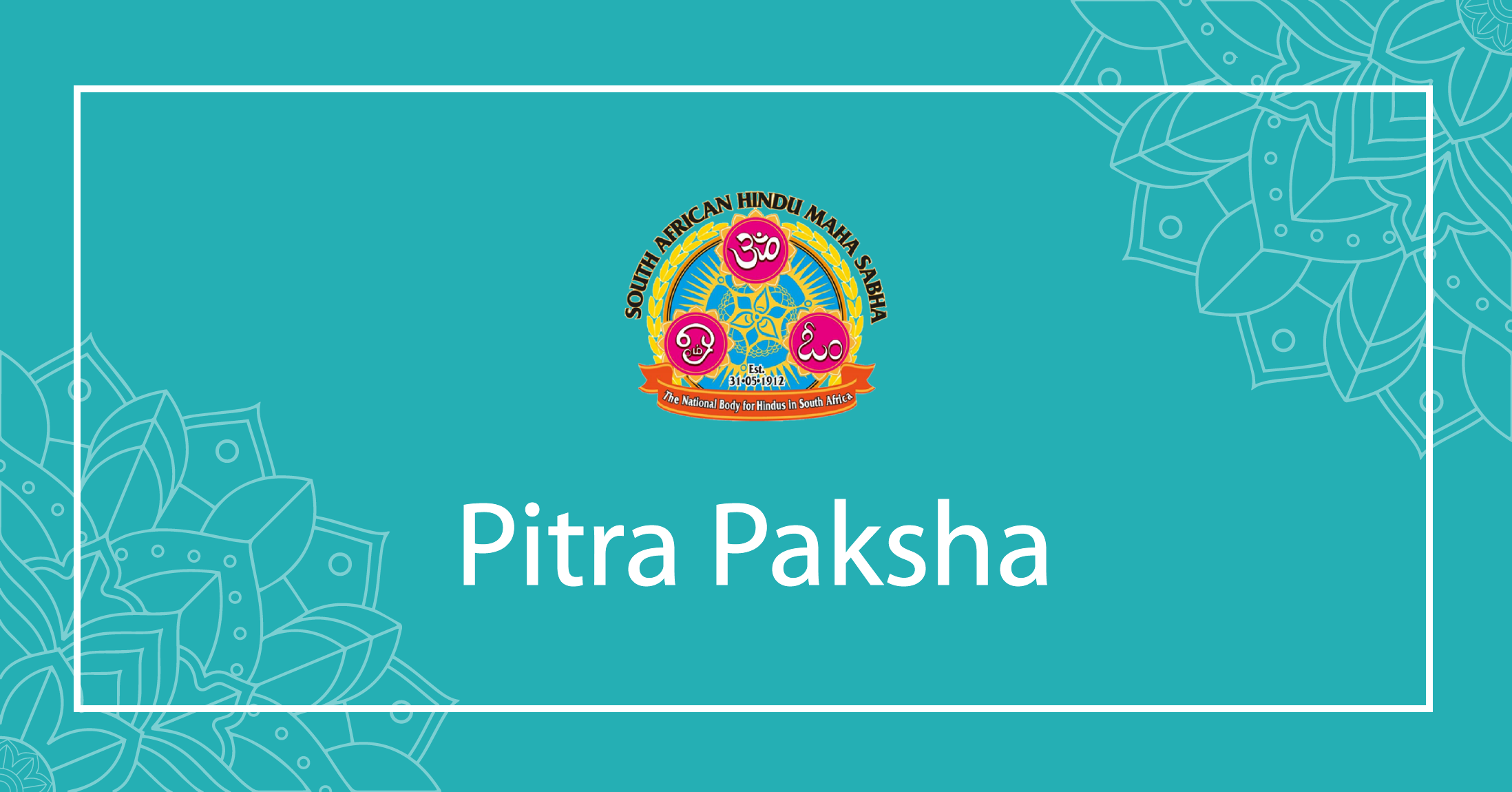
Pitra Paksha
English meaning of the festival
The Sanskrit word Pitra refers to our immediate ancestors, departed relatives and friends, the earliest Rishis (sages) and God in all His aspects. The observance of Mahalaya Paksha and Pitra Paksha, involves intense Bhakti to God, as does every Hindu Religious observance. In addition, devotees pray for the well-being of the souls of departed relatives.
How the date is decided annually
Mahalaya Paksham and Pitra Paksha are observed during Krishna Paksha (waning moon phase) in the Hindu month of Ashwin.
Significance of the festival to Hinduism
Observing Pitra Paksha is in accordance with The Lord’s will. Sri Krishna has instructed in The Srimad Bhagavatam Canto 11, Chapter 7, and Text 50 that Grihasta (householders) should perform Pitra Puja, understanding ancestors to be manifestations of His Potency. Therefore, we do not engage in Mahalaya Paksha and Pitra Puja to the exclusion of worship to the Supreme Lord. Fasting, attending Sathsangh, chanting The Lord’s names, reading scriptures, giving charity, and worshiping God are all undertaken during Pitra Paksha. The observance of Mahalaya Paksha and Pitra Paksha does not mean that elders are appreciated and respected only after death. Every Hindu is expected to respect parents, grandparents and other elders while they are still in our midst and to value and acknowledge their contributions to our development. Only then does observance of Mahalaya Paksha and Pitra Paksha become meaningful.
How to observe/practice
During this period of Mahalaya Paksha and Pitra Paksha, devotees purify themselves in all aspects, internally and externally. Strict discipline, including a vegetarian diet and abstinence from alcohol is observed. All one’s activities are supposed to be in the mode of goodness. Mental purification is also required and devotees therefore control their thoughts, focussing on that which is good and divine. Devotees make water oblations for the full duration of Mahalaya Paksha and Pitra Paksha. Some also make offerings of Pinda (rice ball) on a convenient day during this fortnight. Many people donate groceries, cooked food, clothing and cash. There is also a tradition of leaving some cooked food in a clean place in one’s yard to benefit ants, birds, dogs etc. Many Hindus also make offering of cooked food into a fire. Agni is regarded as the direct messenger to the spiritual world. The food we offer into the fire (not the same as the hawan) is directly translated to spirit matter. The food offerings are an expression of gratitude towards all things that govern our lives. We offer food for Brahman (Supreme Being), the Lord of the Earth and the entire universe.
Updated: 25 January 2023






Please give us pitr paksh prayer method and mantras for DIY due to covid. Thank you
Namaste Robin,
Here is the link on how to perform Tarpan(Water Oblations) – https://sahms.org.za/wp-content/uploads/2020/08/Tharpan-transliteration-1.doc.pdf
Thank you
Namaste
I would like to know when first water will be given for Pithar Paksha And what time can you start
Namaste Sabitha,
Here is a link that provides the given date and time that Pitra Paksh starts – https://sahms.org.za/wp-content/uploads/2020/08/Pitra-Paksh-September-2020.pdf
Thank you